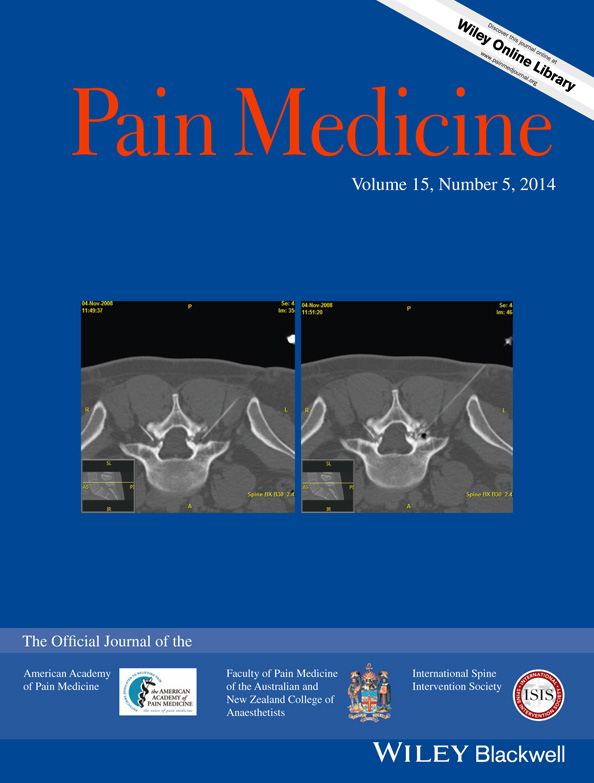When Pain Memories Are Lost: A Pilot Study of Semantic Knowledge of Pain in Dementia
Abstract
Objective
It has been documented that pain in people with dementia is often under-reported and poorly detected. The reasons for this are not clearly defined. This project aimed to explore semantic concepts of pain in people with dementia and whether this is associated with clinical pain report.
Design
Cohort study with nested cross-sectional analysis.
Setting
Acute general hospital medical wards for older people.
Subjects
People with dementia (N = 26) and control participants (N = 13).
Methods
Two subtests of semantic memory for pain: 1) Identifying painful situations from a standardized range of pictures; 2) Describing the concept of pain. Participants also indicated whether they were in pain or not, were observed for pain (PAINAD scale) and completed the Wong–Baker FACES scale to indicate pain severity.
Results
Compared with the control group, people with dementia were less able to identify painful situations and used fewer categories to define their concept of pain. In turn, the performance on these two measures was related to the reported presence and, albeit less strongly, to the reported severity of pain, indicating that a reduction in semantic memory for pain is associated with a decline in reported pain.
Conclusions
This study is the first to show that semantic memory for pain is diminished in dementia patients. When using clinical pain tools, clinicians should consider these effects which may bias clinical pain ratings when they evaluate and manage pain in these patients. This might improve the recognition and management of pain in people with dementia.




